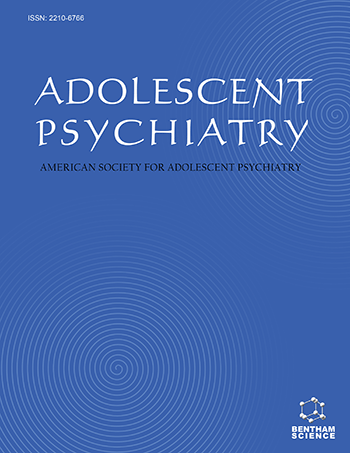Abstract
Interest in the effectiveness of psychological interventions in patients with psychosis has increased in the last 2 decades, and early intervention programs are increasingly common. PIENSA (Programa de Intervención en Psicosis Adolescente; Intervention Program for Adolescent Psychosis) is a clinical program and pilot study based on previous research into the efficacy of early intervention in preventing relapse and improving outcome in patients with first-episode psychosis.
We describe a psychoeducational intervention designed for adolescents with early-onset psychosis and their parents. The intervention is adapted from McFarlane’s Multiple Family Therapy model to our setting and population (adolescents treated in the Spanish public health system). It consists of 2 stages: an individual stage comprising 3 sessions and a subsequent group stage comprising 12 sessions. The total program lasts for 1 academic year (9 months).
We present the design of our program and our preliminary experience in a Child and Adolescent Unit in Spain.
Keywords: Adolescents, family intervention, group therapy, psychoeducational, psychosis, treatment.
Adolescent Psychiatry
Title:PIENSA: Development of an Early Intervention Program for Adolescents With Early-Onset Psychosis and Their Families
Volume: 2 Issue: 3
Author(s): Ana Ruiz-Sancho, Ana Calvo, Marta Rapado-Castro, Miguel Moreno, Carmen Moreno, Teresa Sanchez-Gutierrez, Cecilia Tapia, Guadalupe Chiclana, Pamela Rodriguez, Patricia Fernandez, Celso Arango and Maria Mayoral
Affiliation:
Keywords: Adolescents, family intervention, group therapy, psychoeducational, psychosis, treatment.
Abstract: Interest in the effectiveness of psychological interventions in patients with psychosis has increased in the last 2 decades, and early intervention programs are increasingly common. PIENSA (Programa de Intervención en Psicosis Adolescente; Intervention Program for Adolescent Psychosis) is a clinical program and pilot study based on previous research into the efficacy of early intervention in preventing relapse and improving outcome in patients with first-episode psychosis.
We describe a psychoeducational intervention designed for adolescents with early-onset psychosis and their parents. The intervention is adapted from McFarlane’s Multiple Family Therapy model to our setting and population (adolescents treated in the Spanish public health system). It consists of 2 stages: an individual stage comprising 3 sessions and a subsequent group stage comprising 12 sessions. The total program lasts for 1 academic year (9 months).
We present the design of our program and our preliminary experience in a Child and Adolescent Unit in Spain.
Export Options
About this article
Cite this article as:
Ruiz-Sancho Ana, Calvo Ana, Rapado-Castro Marta, Moreno Miguel, Moreno Carmen, Sanchez-Gutierrez Teresa, Tapia Cecilia, Chiclana Guadalupe, Rodriguez Pamela, Fernandez Patricia, Arango Celso and Mayoral Maria, PIENSA: Development of an Early Intervention Program for Adolescents With Early-Onset Psychosis and Their Families, Adolescent Psychiatry 2012; 2 (3) . https://dx.doi.org/10.2174/2210676611202030229
| DOI https://dx.doi.org/10.2174/2210676611202030229 |
Print ISSN 2210-6766 |
| Publisher Name Bentham Science Publisher |
Online ISSN 2210-6774 |
 20
20
- Author Guidelines
- Graphical Abstracts
- Fabricating and Stating False Information
- Research Misconduct
- Post Publication Discussions and Corrections
- Publishing Ethics and Rectitude
- Increase Visibility of Your Article
- Archiving Policies
- Peer Review Workflow
- Order Your Article Before Print
- Promote Your Article
- Manuscript Transfer Facility
- Editorial Policies
- Allegations from Whistleblowers
Related Articles
-
Editorial: Sleeplessness, Loneliness and Stigma: Under-recognized Problems in Adolescent Psychiatry
Adolescent Psychiatry Risk Factors for Suicidal Ideation Among High School Students in Istanbul
Adolescent Psychiatry Mother-Daughter Reunification in Adolescence: Another Trauma, Another Chance
Adolescent Psychiatry Child Mental Health in the Philippines
Adolescent Psychiatry Destruction as a Means of Survival: The Paradigm of Modern Psychopathology
Adolescent Psychiatry History of Psychiatry in the Dominican Republic
Adolescent Psychiatry Adolescent Peer Victimization and PTSD Risk
Adolescent Psychiatry Child and Adolescent Mental Health in the Juvenile Justice System in India: Challenges and Initiatives
Adolescent Psychiatry Mind-Body Practices and the Adolescent Brain: Clinical Neuroimaging Studies
Adolescent Psychiatry A Selective Review of the Research on Juvenile Bipolar Disorder: Implications for Struggling Clinicians
Adolescent Psychiatry Adolescents with Same Sex Parents: Does it Make a Difference?
Adolescent Psychiatry Multicultural Issues in Child and Adolescent Psychiatry in Ireland
Adolescent Psychiatry Male Adolescent Treatment Outcome: A Case Series of Eight Men Treated with Psychoanalytic Psychotherapy
Adolescent Psychiatry Loneliness in Adolescence – A Two-Systems Approach
Adolescent Psychiatry Promoting Well-being and Resilience in Employing a Relationship Centered Approach: A Case Study of a Pre-adolescent Boy
Adolescent Psychiatry Diagnosis of Autism Spectrum Disorder in Adolescents with Complex Clinical Presentations: A Montreal Case Series
Adolescent Psychiatry Self-esteem of Greek Adolescents: Changes in a Decade of Socioeconomic Hardship#
Adolescent Psychiatry Non-Pharmacological Treatments for ADHD in Youth
Adolescent Psychiatry Problematic Internet Use, Sleep Quality and Academic Achievement In Turkish University Students
Adolescent Psychiatry Self-inflicted Bilateral Ocular Perforation in an Adolescent Patient with Major Depressive Disorder and Borderline Personality Traits
Adolescent Psychiatry

























